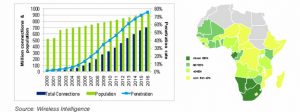In a recent report by the Guardian, it was revealed that leaked documents showed lobbying proposals to delay laws that would allow fast introduction of generic medicines in South Africa.
Shockingly, this means patents on breakthrough (read recently discovered medicine) drugs could be halted, but for what?
If the changes to the new intellectual property law take place, this could be a definite reality, warns the Guardian.
Drug companies in South Africa have been accused of planning a covert, well-funded campaign to delay the introduction of laws that threaten their profits.
Leaked documents show that pharmaceutical companies planned a $450,000 campaign, involving a high-profile consultancy based in Washington, DC, against changes to intellectual property laws that would enable their patents on new medicines to be bypassed in the interests of public health. This would allow the manufacture of cheaper copies of their medicines.
Campaigners accused the international drug giants of trying to derail life-saving legislation. The trade body IPASA (Innovative Pharmaceutical Industry Association South Africa), which was coordinating the campaign, said on Thursday the plans were no longer going ahead – although it was legitimate for drug companies to promote their views in this way.
One of the leaked documents is an email dated 10 January from a member of IPASA’s executive to representatives of most of the big-name drug companies operating in South Africa. As agreed in December, it says, “we have moved ahead in identifying a high-calibre consultancy group to work with us”, naming Washington-based Public Affairs Engagement (PAE).
The second document is the proposed PAE strategy, involving the creation of an alliance of businesspeople and academics, the placement of prominent editorials in newspapers, and a bid to “distract” access to medicine campaigners “from their own aggressive campaign”.
The document later names Médecins Sans Frontières (MSF) and the Treatment Action Campaign (TAC), calling them a “coalition that was formed to pressure the government into producing [the draft IP policy] in the first place”.
The stakes are high, says the document. “South Africa is now ground zero for the debate on the value of strong IP protection. If the battle is lost here, the effects will resonate. Clearly MSF and similar NGOs understand that … Without a vigorous campaign, opponents of strong IP will prevail – not just in South Africa but eventually in much of the rest of the developing world.”
Campaigners said they were shocked. “What is surprising to us is that it is done so subversively,” said Julia Hill of MSF. “We have really made an effort to be very transparent. It is disappointing that this is being done in secret and that such an extraordinary amount of money is being spent to interfere with the democratic process.”
Lotti Rutter, a senior researcher at TAC, said: “We have got massive concerns over what appears to be quite a covert and well-funded attempt from foreign industry to delay an essential law reform process happening here in South Africa.”
Which side wins this battle remains to be seen.

